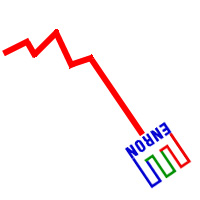by Steve Houston
How CarFax came to dominate the automobile industry is an amazing success story, and it’s particularly instructive since it also helps explain why this new marketing strategy small business must implement has become so critically important. If you own or manage a company, read on because I’m going to tell you how to keep it from being “carfaxed” too…
When CarFax entered the auto market in 1984, they were very clever about how they did it. Their business model was based on getting all the auto dealerships in the country to sign up for their monthly car-history tracking and reporting program. But rather than market their service directly to the auto dealers, they positioned themselves as an expert in the market directly between the consumer and the auto dealer.
They spent hundreds of millions of dollars on advertising that taught auto shoppers to request a free CarFax report whenever they went shopping at a used automobile dealership. Recognize their tagline? “Just ask for the CarFax.” You still hear it on TV today. What they did, essentially, was establish a new standard for automobile buying in consumers’ minds – before you buy a vehicle, you need to get your free CarFax report on that vehicle from the dealer. Consumers listened, learned, and embraced it, naturally, because it was a great service and it didn’t cost them a dime.
So when potential car customers started showing up at dealerships asking for their CarFax reports, auto dealers were confronted with a choice. The dealers that didn’t subscribe to CarFax’s monthly service soon discovered that prospects coming to their dealerships didn’t trust them as much as the dealerships who did offer CarFax reports to potential buyers.
Guess which dealerships’ sales started to really soar? That’s right – the ones who chose to give the free CarFax report to their prospects.
(Note: When your line of business is already widely viewed as being, shall we say, less than reputable, this really hits a nerve.) Other auto dealers finally realized the deck was stacked against them and they started signing up in droves. CarFax was officially born.
CarFax’s strategy allowed consumers to infer that dealerships who gave their customers CarFax reports were more reputable than those dealers who didn’t.
Today, Google, Yelp, Angie’s List, and hundreds of other online business directories are doing the same thing to you and your business, leveraging your customer reviews and online reputation instead. This is the marketing strategy small business owners must understand.
A few years ago (and probably without your knowledge), each of these online business directories gave you a free webpage where anyone can go and write reviews about your company. Good or bad, complimentary or critical, accurate or completely false, it doesn’t matter – your professional reputation is now being written online by your past customers. Those reviews are also being seen by hundreds of prospects each month as they search online for companies like yours to do business with.
By encouraging customers to write reviews about businesses and publish them on their websites for everyone to read, Google attracts millions of visitors daily. This serves two purposes – they provide a useful service that helps consumers choose between companies to either patronize or avoid, while earning billions of dollars each year from the advertising they sell on their webpages. One unintended consequence of all this is that the demand for professional reputation marketing services also started to take off.
So what does this mean for your business? If you have any bad customer reviews posted about you online, hundreds of prospective customers every month see those reviews. Most of them will choose not to give you their business and will instead give it to another company who has a better online reputation.
If your company has negative reviews written about it – or no reviews at all, and therefore has no reputation – you are not going to be viewed as trustworthy. People will take their business elsewhere.
Business is based on trust and the marketing wizards at CarFax understood that almost 20 years ago. Today, Google and a host of other online business directories are applying the same strategy to you, this time using only a slightly different twist.
And if you were like most business owners, you didn’t even know it is happening.
But now you do. Savvy business owners are beginning to realize they have to gain control of their online reputations. To ignore the problem and simply leave it to chance is to invite disaster. This is one marketing strategy small business owner can’t afford to ignore.
Managing your online reputation is not an easy thing to do, but when done correctly, it can be a particularly powerful form of marketing for your company. “Reputation marketing” is a relatively new, highly specialized service that sprang up in response to this new requirement. If business owners don’t have the technical knowledge, time, or inclination to do it themselves, an expert reputation marketing consultant can help clients:
- recover their tarnished reputation, if necessary
- build a 5-star online reputation that earns new customers’ trust and improves sales conversions
- market their business by leveraging the powerful “social proof” value of their 5-star reputation
- instill a “reputation-minded” culture within their organization to foster a high reputation “awareness”
Actively managing their companies’ online reputations is a new ballgame for most business owners, so you’re probably not the only one feeling overwhelmed by it all. Reputation marketing solutions do exist but you need to get started now before your competitors do. Not next week. Not tomorrow.
Now.
After all, there’s nothing more important to a business than having a trustworthy, rock-solid professional reputation. Little CarFax taught the enormous used car industry this fundamental lesson. Today, it’s Google, Angie’s List, Yelp and hundreds more business directories that are, instead, defining the relationship between your business and thousands of prospective online customers. The one marketing strategy small business needs to start working on is called reputation marketing, and the sooner they start, the better.
You’ve been warned.
(CarFax, Google, Yelp, and Angie’s List are all registered trademarks of their respective companies.)
 by Steve Houston
by Steve Houston

 You may remember Kenneth Lay, former chairman and CEO of Enron, the high-flying energy trading company that crashed and burned back in late 2001.
You may remember Kenneth Lay, former chairman and CEO of Enron, the high-flying energy trading company that crashed and burned back in late 2001.  by Steve Houston
by Steve Houston




